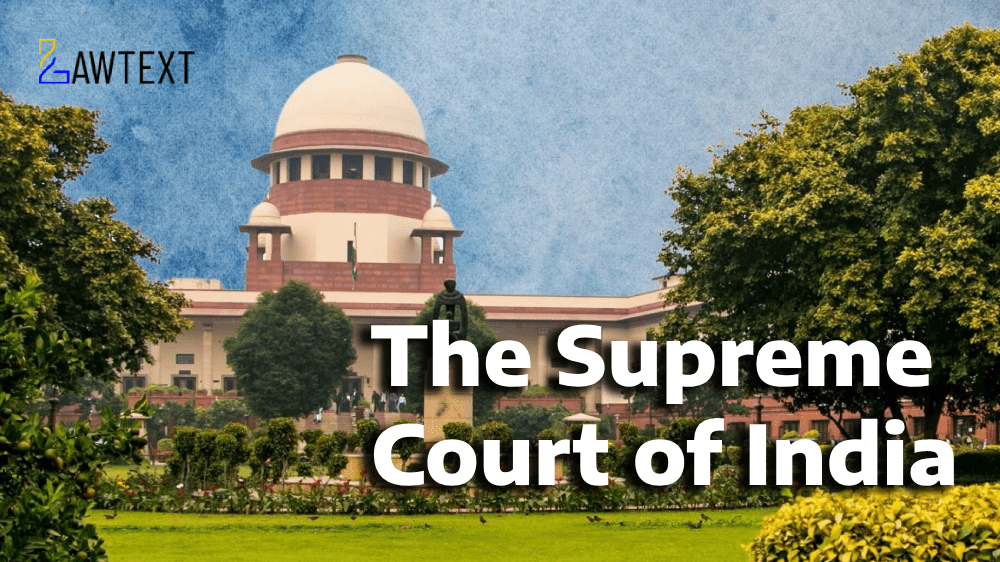

Safety Measures and Employer Liability – Apex Court Emphasizes Absence of Prima Facie Case Under Indian Penal Code, 1860
a) The essential ingredients of Section 304 Part II IPC, including the knowledge that the act was likely to cause death, were not established. b) The incident was purely accidental, and no overt act of negligence or intention could be attributed to the appellants. c) The absence of prima facie evidence against the appellants justified their discharge under Section 227 of CrPC. d) Distinction drawn between knowledge and intention in establishing culpable homicide versus negligence. (Paras 12 to 17)
The Supreme Court allowed the appeal, set aside the orders of the Trial Court and High Court, and discharged the appellants from the criminal proceedings.
Acts and Sections Discussed –
Constitution of India (COI) – Article 142 – Inherent powers of the Supreme Court.
Code of Criminal Procedure, 1973 (CrPC) – Section 174 – Procedure for inquest.
Code of Criminal Procedure, 1973 (CrPC) – Section 227 – Discharge of accused.
Indian Penal Code, 1860 (IPC) – Section 34 – Acts done by several persons in furtherance of common intention.
Indian Penal Code, 1860 (IPC) – Section 299 – Definition of culpable homicide.
Indian Penal Code, 1860 (IPC) – Section 300 – Definition of murder.
Indian Penal Code, 1860 (IPC) – Section 304 Part II – Punishment for culpable homicide not amounting to murder.
Indian Penal Code, 1860 (IPC) – Section 304A – Causing death by negligence.
Indian Penal Code, 1860 (IPC) – Section 201 – Causing disappearance of evidence of offense.
Indian Penal Code, 1860 (IPC) – Section 182 – False information with intent to cause public servant to use his lawful power to the injury of another person.
Subjects – Culpable Homicide, Negligence, Safety Equipment, Electrocution, Discharge Application, Knowledge, Intention, Prima Facie Case, Workplace Safety, Employer Liability
Nature of the Litigation – Criminal appeal arising from the dismissal of discharge applications filed under Section 227 of CrPC.
Who Asked the Court and for What Remedy? – The appellants, Yuvraj Laxmilal Kanther and Nimesh Pravinchandra Shah, sought discharge from the criminal proceedings initiated against them for the alleged offenses under IPC.
Reason for Filing the Case – The case arose due to the electrocution and subsequent death of two employees while working on a signboard at the leased shop premises. The prosecution alleged failure on the part of the appellants to provide adequate safety equipment, leading to the deaths.
What Had Already Been Decided? – The Additional Sessions Judge, Pune, dismissed the discharge applications, and the Bombay High Court upheld this dismissal, forming the basis of the present appeal.
Issues –
a) Whether the absence of safety equipment provided by the appellants constituted culpable homicide not amounting to murder under Section 304 Part II IPC. b) Whether there was sufficient material to frame charges against the appellants. c) Whether the circumstances established a prima facie case justifying the initiation of a criminal trial.
Submissions/Arguments –
Appellants: a) No material evidence showing commission of the alleged offenses. b) Absence of intention or knowledge required to establish culpable homicide. c) FIR and witness statements silent on any overt act by the appellants. d) Compensation already provided to the victims’ families.
Respondent: a) Appellants' failure to provide safety equipment indicated negligence. b) Strong suspicion of knowledge on the appellants' part regarding the potential risk. c) Material justifying framing of charges under IPC Sections 304 Part II and 304A.
Citation: 2025 LawText (SC) (3) 77
Case Number: CRIMINAL APPEAL NO. 2356 OF 2024
Date of Decision: 2025-03-07
Case Title: YUVRAJ LAXMILAL KANTHER & ANR. VERSUS STATE OF MAHARASHTRA
Before Judge: [ABHAY S. OKA J. , UJJAL BHUYAN J.]
Appellant: YUVRAJ LAXMILAL KANTHER & ANR.
Respondent: STATE OF MAHARASHTRA